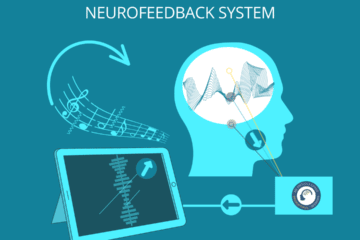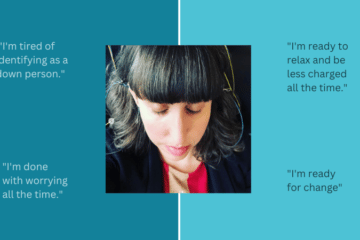Trauma Expert Van Der Kolk And Neurofeedback
As trauma survivors we know that there are enough negative patterns-angry outbursts, mistrust of others, anxiety that prevents us from connecting-that are very hard to control with willpower alone, we are open to hearing new ways to help our PTSD. Leading trauma expert Dr Van Der Kolk in his book, The Body Keeps the Score, identifies neurofeedback therapy as effective support for complex trauma (childhood trauma).
When we suffer from PTSD or complex trauma our relationships suffer and we wonder how we can help ourselves improve our relationships. Despite our best efforts, our marriages suffer when we have histories of traumatic experiences. It’s helpful to define trauma behaviorally, rather than comparing oneself with others.
- connecting with loved ones and partners,
- feeling safe, or like our partner is on our side
- get triggered by things they say or do and quickly have a strong negative emotional reaction
- are constantly fighting,

Relationship Repair – Three Ways Neurofeedback Can Help
1. Neurofeedback Decreases The Stress Response Making It Easier To Connect With Others In A Non-Reactive Way.
Jenny, after many years of talk therapy, decided to add neurofeedback training to support her ongoing depression and found that it had a positive impact on her relationship with her husband.
“I’m better able to not get into horrible discussions…My husband noticed that I’m more balanced.”
–Jenny
2. Neurofeedback Creates The Feeling Of Being Calm – Leading To Better Sex.
If we have a post-traumatic stress response it is often difficult to engage and enjoy our sexual relationship. Understandably, if the brain is perceiving a “threat” it won’t want to have sex!
Here’s Jeremy’s Neurofeedback Review and How The Training Helped His Relationship.
Jeremy had been physically abused by his father as a child. He once remarked to me: “When I first saw the TV Show The Sopranos I thought: Oh my god, those guys used to hang out at my house when I was a kid. That’s when I realized how bad it really was growing up.”
As an adult Jeremy has struggled with angry outbursts, constantly feeling like the world is out to get him, poor sleep/nightmares, and episodes of depression–all classic Post Traumatic Stress symptoms.
A year ago Jeremy came in some money from his father and I suggested he buy a NeurOptimal home neurofeedback device so he could train regularly. Previously he had done 8 in-office sessions and noticed positive changes from the neurofeedback in his mood and sleep but he lived far away and couldn’t come regularly.
Just last week Jeremy and I spoke and the conversation revolved around his current dilemma: “Natalie, I don’t know who I am anymore—I’m not sleep deprived, I can tolerate the challenges at work, the kids don’t irritate me nearly as much as they used to. I’m not sure what to do with myself.” We joked about the fact that he was struggling to find his identity now that his life felt manageable.
The other observation he made was: “Oh, and I’m enjoying sex more with my wife. I’m not sure what that’s about.”
I pushed him a bit and asked, “Are you sure you don’t know what that’s about?” I didn’t want to give him the opportunity to be passive about positive changes.
“Well, I’m more relaxed. And I’m more open with her in general. So I guess it makes sense.”
I responded with, “Deer don’t have sex if they think there’s a bear on the edge of the clearing!”
He laughed and said, “I guess not!”
When the brain is making the gradual transition from living in a state of activation or the fight/flight/freeze response, it takes a while to make those new neural pathways. As a consequence slowly our behaviours and our perception of the world change too. Jeremy’s story is an example of what we call the “seamless changes” that are brought about by neurofeedback training.
3. Neurofeedback Training Decreases Impulsive Anger Reaction.
How? Neurofeedback decreases the reactivity of our primitive reptilian brain. The trained brain doesn’t want to expend the energy of the “fight response” unless there is a real danger present. Secondly, that brain is also more aware of anger in others and is less interested in engaging in communication when it looks like the other person is going to over-react to the present level of threat.
Our brains are designed to use energy efficiently and effectively and to problem solve using the least amount of energy necessary. With neurofeedback training, the brain hones that ability to scan the current environment for information about what’s really happening.
If our partner is getting angry, which is basically problem-solving with a club, the trained brain is going to unconsciously want to back off until our partner is calmer and better able to communicate at the level of energy needed to create success. (Talking calmly uses less energy than yelling!)
Without consciously realizing it, the individual who has done a series of neurofeedback sessions will be a more effective communicator: intuitively decreasing interactions with others who are in a stress response, making it easier to disengage from people who are anxious or angry.
 Natalie Baker, LMHC, Licensed Psychotherapist, Certified Zengar® Advanced Neurofeedback Trainer in NYC
Natalie Baker, LMHC, Licensed Psychotherapist, Certified Zengar® Advanced Neurofeedback Trainer in NYC
Natalie has over fifteen years of experience as a psychotherapist treating clients with conditions such as PTSD, trauma, anxiety, depression, ADHD, insomnia and relationship issues. When she introduced neurofeedback into her practice three years ago, she was thrilled to discover neurofeedback sped up–sometimes effortlessly – her client’s healing process.
Some clients opt for simultaneous talk therapy and neurofeedback and some for neurofeedback alone. Contact Natalie here to schedule a session.


